
research areas
objectives
This line of research aims to investigate the impacts of ongoing climate change and ecosystem adaptation, especially, on drylands and zones prone to desertification.
highlights
18 research papers
6 international network
9 dissemination outputs

research projects & international networks
LIFE Desert-Adapt - Preparing desertification areas for increased climate change +info

Adapt For Change - Improve the success of reforestation in semi-arid areas: Adaptation to climate change scenario +info
ChangeTracker - Tracking climate change in drylands based on ecological indicators +info
Desert Warning - Modeling Ecosystem Structure and Functional Diversity as early-warning indicators of Desertification and Land-degradation

Bio Crusts - Functional diversity of Biocrusts: towards ecosystem services quantification in drylands +info

TransBasin - Transboundary Water Basin Management +info
LTERmontado - Long-term socio-ecological research and monitoring in a Mediterranean cultural landscape

Almada Restoration - Monitoring restoration of ecosystem of ecological high value and development of restoration procedures for ecological continuities on roads and riparian corridors +info
eLTER H2020 project - Integrated European Long-Term Ecosystem & Socio-Ecological Research Infrastructure

Cost Action ES1104 - Tracking climate change in drylands based on ecological indicators
dissemination outputs
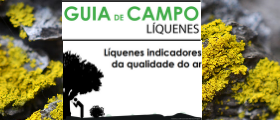
Field guide for using epiphitic lichens as indicators of air quality: a tool for the general public (portuguese) download here
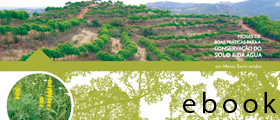
ebook- soils | good practices for soil and water conservation in drylands (potuguese) download here
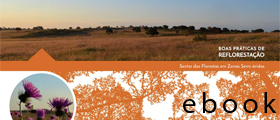
ebook-forests | Good practices for reforestations in drylands(portuguese) download here
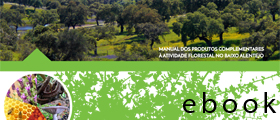
ebook-other complementary activities | complementary non-forestry products
download here
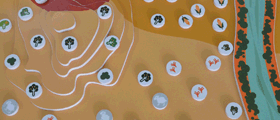
Can you manage a montado? +info
A board game to understand the challenges in forest management under climate change
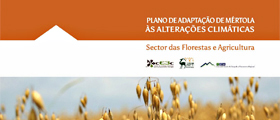
Mértola's Adaptation Plan to Climate Change: Forest and Agriculture | download here
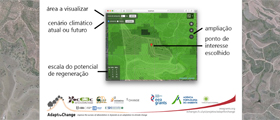
WebSig | Visualizing the potential of natural regeneration by native forests see here
publications
Adessi, A., Cruz de Carvalho, R., De Phillippis, R., Branquinho, C. & Marques da Silva, J. (2018) Microbial extracellular polymeric substances improve water retention in dryland biological soil crusts. Soil Biology and Biochemistry, 116, 67-69. DOI:10.1016/j.soilbio.2017.10.002 (IF2017 4.926; Q1 Soil Science +info
Concostrina-Zubiri, L., Martínez, I. & Escudero, A. (2018) Lichen-biocrust diversity in a fragmented dryland: fine scale factors are better predictors than landscape structure. Science of the Total Environment, 628-629, 882-892. + info
Brando, C., Cameira, M.D., Valente, F., Cruz de Carvalho, R. & Paco, T.A. (2017) Wet season hydrological performance of green roofs using native species under Mediterranean climate. Ecological Engineering, 102, 596-611. +info
Concostrina-Zubiri, L., Molla, I., Velizarova, E. & Branquinho, C. (2017) Grazing or not grazing: implications for ecosystem services provided by biocrusts in Mediterranean cork oak woodlands. Land Degradation & Development, 28(4), 1345-1353. +info
Cruz de Carvalho, R., Catal, M., Branquinho, C., Silva, J.M. & Barreno, E. (2017) Dehydration rate determines the degree of membrane damage and desiccation tolerance in bryophytes. Physiologia Plantarum, 159(3), 277-289. +info
Nunes, A., Kšbel, M., Pinho, P., Matos, P., de Bello, F., Correia, O. & Branquinho, C. (2017) Which plant traits respond to aridity? A critical step to assess functional diversity in Mediterranean drylands. Agricultural and Forest Meteorology, 239, 176-184. +info
Ochoa-Huesoa, R., Munzi, S., Alonso, R., Arróniz-Crespo, M., Avila, A., Bermejo, V., Bobbink, R., Branquinho, C., Concostrina-Zubiri, L., Cruz, C., Cruz de Carvalho, R., De Marco, A., Dias, T., Elustondo, D., Elvira, S., EstŽbanez, B., Fusaro, L., Gerosa, G., Izquieta-Rojano, S., Cascio, M., Marzuoli, R., Matos, P., Mereu, S., Merino, J., Morilla, L., Nunes, A., Paoletti, E., Paoli, L., Pinho P., Roger, I.B., Santos, A., Sicard, P., Stevens, C.J. & Theobald, M.R. (2017) Ecological impacts of atmospheric pollution and interactions with climate change in terrestrial ecosystems of the Mediterranean Basin: Current research and future directions. Environmental Pollution, 227, 194-206. +info
Paoli, L., Pinho, P., Branquinho, C., Loppi, S. & Munzi, S. (2017) The influence of growth form and substrate on lichen ecophysiological responses along an aridity gradient. Environmental Science & Pollution Research, 24(34), 26206-26212. +info
Príncipe, A.S., van der Maaten, E., van der Maaten-Theunissen, M., Struwe, T., Wilmking, M. & Kreyling, J. (2017) Low resistance but high resilience in growth of a major deciduous forest tree (Fagus sylvatica L.) in response to late spring frost in southern Germany. Trees, 31(2), 743-751.+info
Baumert, S., Luz, A.C., Fisher, J., Vollmer, F., Ryan, C., Patenaude, G., Zorrilla-Miras, P., Artur, L., Nhantumbo, I. & Macqueen, D. (2016) Charcoal supply chains from Mabalane to Maputo: who benefits? Energy for Sustainable Development, 33, 129-138.+info
Costantini, E.A.C., Branquinho, C., Nunes, A., Schwilch, G., Stavi, I., Valdecantos, A. & Zucca, C. (2016) Soil indicators to assess the effectiveness of restoration strategies in dryland ecosystems. Solid Earth 7:397-414. +info
Nunes, A., Oliveira, G., Mexia, T., Valdecantos, A., Zucca, C., Costantini, E.A., Abraham, E., Kyriazopoulos, A., Salah, A., Prasse, R., Correia, O., Milliken, S., Kotzen, B. & Branquinho, C. (2016) Ecological restoration across the Mediterranean Basin as viewed by practitioners. Science of the Total Environment, 566-567, 722-732. +info
Silva, J.S., dos Santos, P., Sério A., Gomes, F. (2016) Effects of heat on dehiscence and germination in Eucalyptus globulus Labill. International Journal of Wildland Fire, 25(4), 478-483. +info
Woollen, E., Ryan, C.M., Baumert, S., Vollmer, F., Grundy, I., Fisher, J., Fernando, J., Luz, A., Ribeiro, N. & Lisboa, S.N. (2016) Charcoal production in the mopane woodlands of Mozambique: what are the trade-offs with other ecosystem services? Philosophical Transactions of The Royal Society of London Series B-Biological Sciences, 371, 20150315. +info
Cruz de Carvalho, R., Bernardes da Silva, A., Branquinho, C. & Marques da Silva, J. (2015) Influence of dehydration rate on cell sucrose and water relations parameters in an inducible desiccation tolerant aquatic bryophyte. Environmental and Experimental Botany, 120, 18-22. +info
dos Santos, P., Matias, H., Deus, E., çguas, A. & Silva, J.S. (2015) Fire effects on capsules and encapsulated seeds from Eucalyptus globulus in Portugal. Plant Ecology, 216(12), 1611-1621.
Matos P., Pinho P., Aragon G., Martinez I., Nunes A., Soares A., Branquinho C. 2015. Lichen traits responding to aridity. Journal of Ecology 103:451-458. +info
Nunes A, Tápia S, Pinho P, Correia O, Branquinho C (2015) Advantages of the point-intercept method for assessing functional diversity in semi-arid areas. iForest - Biogeosciences and Forestry 8:471-479. +info
Shibata, H., Branquinho, C., McDowell, W.H., Mitchell, M.J., Monteith, D.T., Tang, J., Arvola, L., Cruz, C., Cusack, D., Halada, L., Kopacek, J., Máguas, C., Sajidu, S., Schubert, H., Tokuchi, N. Záhora, J. (2015) Consequence of altered nitrogen cycles in the coupled human and ecological system under changing climate: the need for long-term and site-based researches. Ambio, 44, 178-193. +info
eChanges - Ecology of Environmental Change, a research group from cE3c
© 2018 designed by paulis , developed by eChanges





